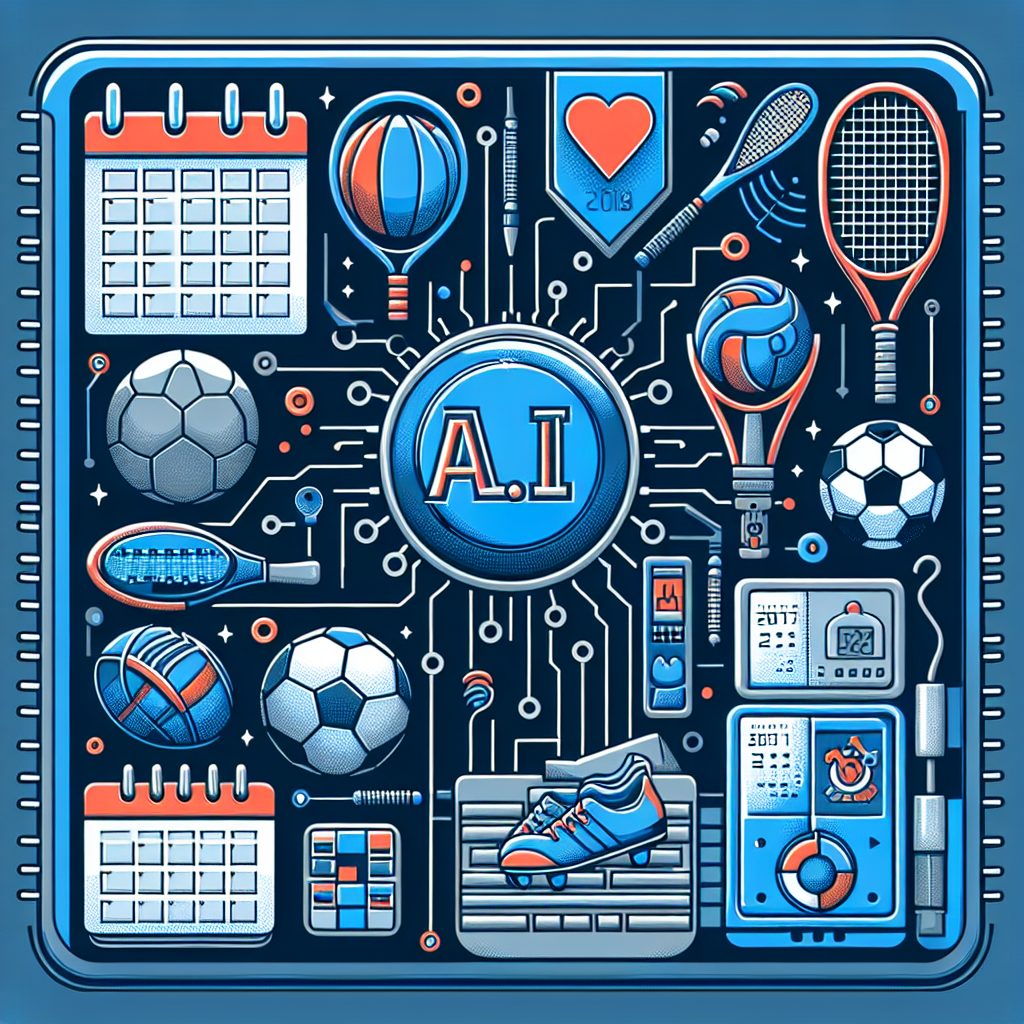Artificial Intelligence (AI) is revolutionizing the way sports events are planned and executed. With the help of AI, event organizers can optimize various aspects of their planning process, from scheduling and ticket sales to marketing and logistics. By using AI-powered tools, sports event planners can improve efficiency, reduce costs, and enhance the overall experience for fans and athletes alike.
One of the key areas where AI is making a significant impact in sports event planning is in scheduling. AI algorithms can analyze a wide range of data, such as team performance, venue availability, and travel logistics, to create optimal schedules for tournaments and leagues. By taking into account various factors that affect scheduling, such as team preferences and historical data, AI can help organizers avoid conflicts and ensure a smooth and efficient event schedule.
Another important aspect of sports event planning that AI can optimize is ticket sales. AI-powered tools can analyze data on fan behavior, such as purchasing patterns and preferences, to create personalized marketing campaigns and pricing strategies. By targeting the right audience with the right message at the right time, event organizers can maximize ticket sales and revenue. AI can also help organizers identify trends and patterns in ticket sales data, allowing them to make informed decisions about pricing and promotion strategies.
AI can also be used to optimize marketing efforts for sports events. By analyzing social media data, online search trends, and other sources of information, AI can help organizers identify potential fans and engage with them in a more targeted and personalized way. AI-powered tools can also provide insights into the effectiveness of marketing campaigns, allowing organizers to adjust their strategies in real-time to maximize impact.
Logistics is another area where AI can play a key role in sports event planning. By analyzing data on transportation, accommodation, and other logistical factors, AI can help organizers optimize the flow of people and resources during an event. AI algorithms can predict traffic patterns, identify potential bottlenecks, and suggest alternative routes or solutions to ensure smooth operations. This can help organizers minimize delays, reduce costs, and enhance the overall experience for participants and spectators.
Overall, AI is revolutionizing sports event planning by optimizing various aspects of the process, from scheduling and ticket sales to marketing and logistics. By leveraging the power of AI-powered tools, event organizers can improve efficiency, reduce costs, and enhance the overall experience for fans and athletes alike.
FAQs:
Q: How does AI help optimize scheduling for sports events?
A: AI algorithms analyze a wide range of data, such as team performance, venue availability, and travel logistics, to create optimal schedules for tournaments and leagues. By taking into account various factors that affect scheduling, such as team preferences and historical data, AI can help organizers avoid conflicts and ensure a smooth and efficient event schedule.
Q: How does AI optimize ticket sales for sports events?
A: AI-powered tools analyze data on fan behavior, such as purchasing patterns and preferences, to create personalized marketing campaigns and pricing strategies. By targeting the right audience with the right message at the right time, event organizers can maximize ticket sales and revenue. AI can also help organizers identify trends and patterns in ticket sales data, allowing them to make informed decisions about pricing and promotion strategies.
Q: How does AI optimize marketing efforts for sports events?
A: AI analyzes social media data, online search trends, and other sources of information to help organizers identify potential fans and engage with them in a more targeted and personalized way. AI-powered tools also provide insights into the effectiveness of marketing campaigns, allowing organizers to adjust their strategies in real-time to maximize impact.
Q: How does AI optimize logistics for sports events?
A: AI analyzes data on transportation, accommodation, and other logistical factors to help organizers optimize the flow of people and resources during an event. AI algorithms predict traffic patterns, identify potential bottlenecks, and suggest alternative routes or solutions to ensure smooth operations. This helps organizers minimize delays, reduce costs, and enhance the overall experience for participants and spectators.

